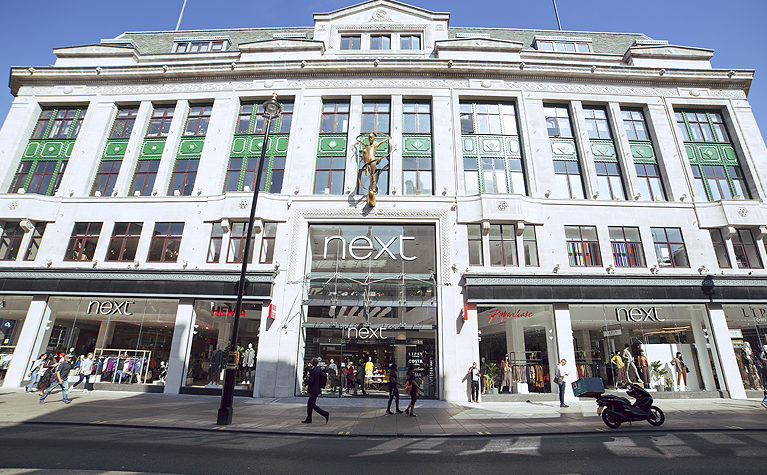Why Next and Dunelm’s share price falls present long-term buying opportunities

The share price performances of FTSE 350 index retailers Next (LON: NXT) and Dunelm (LON: DNLM) have been hugely disappointing over recent months. Since the start of the year, they have fallen by 22% and 44%, respectively, as investors have responded to an increasingly uncertain outlook for the retail sector.
While further share price falls cannot be ruled out in the short run, both stocks now trade on more appealing valuations that suggest they offer long-term recovery potential as they implement their online-focused strategies.
An uncertain short-term outlook
In the near term, the prospects for both stocks appear to be downbeat. The cost-of-living crisis means that consumers are likely to have far less to spend on discretionary items, and may trade down to cheaper substitutes on staple products. Indeed, UK consumer confidence recently declined to an all-time low. This could cause lower sales and profitability, as well as weaker investor sentiment, across the retail sector.
However, Next and Dunelm have the financial strength to overcome a period of challenging operating conditions. Next’s operating profit, for example, covered its net interest costs 11 times in the most recent financial year. Meanwhile, Dunelm’s net finance costs were covered 19 times in its latest financial year. These figures show that both companies can withstand a severe fall in profitability in the short run and are likely to be well-placed to benefit from a long-term recovery.
Long-term recovery potential
Clearly, the prospect of a long-term recovery in the share prices of both companies may seem somewhat distant at the present time. However, they are well-positioned to take advantage of evolving consumer trends. Both companies have successfully pivoted to digital sales channels. Next, for instance, generated 64% of its total sales from online sources in its most recent financial year. Dunelm’s digital sales represented 35% of its total revenue in its latest quarter.
While digital sales as a proportion of total retail sales have fallen since their Covid-19 lockdown peak of 38%, crucially their long-term growth trend is likely to continue. Indeed, over the past 15 years they have risen from representing 3% of all retail sales to 26% of total retail industry sales. Next and Dunelm’s online presence could therefore provide them with a competitive advantage over peers.
Dunelm also reported a 0.3 percentage point rise in its gross margin in the latest quarter. This shows that it is successfully managing a period of rising input costs, which could improve its competitive position and allow it to increase market share. Next, meanwhile, reaffirmed its full-year guidance in its latest trading update. Its strategy to broaden online exposure through its third-party platform and logistics services could strengthen its market position over the long run.
Margin of safety
Following their share price falls, both companies trade on relatively appealing valuations that may not reflect their long-term recovery prospects. Next’s shares have a forward price-to-earnings (P/E) ratio of 11.5, while Dunelm’s prospective P/E ratio stands at 10.
These figures suggest that investors have more than adequately priced in the risks they face over the short run. They indicate that, while further share price declines cannot be ruled out, the long-term investment prospects for both stocks appear to be attractive.
I did a simple comparison of Next, Boohoo and Asos yesterday – all crudely in the same business though NXT is a hybrid with both bricks and mortar and online. On almost every profitability and valuation criterion Next was miles ahead. I cannot see that changing though as the author suggests it would be a brave investor that would take a new positiion in the current climate. But then again fortune favours the brave (doesn’t it?).